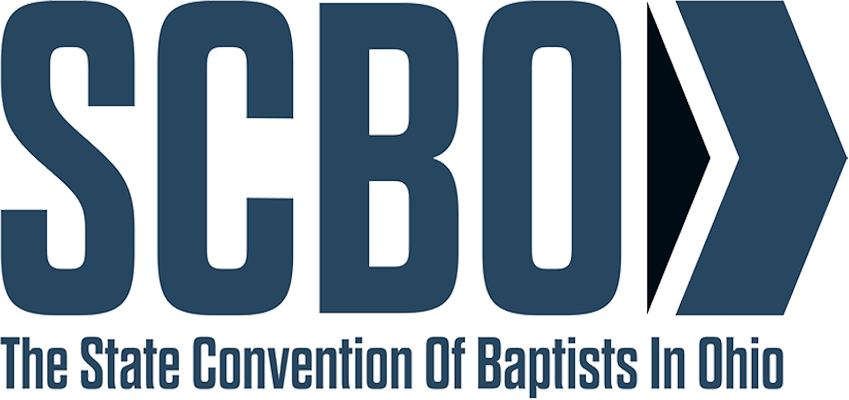Praying Strategically for Your Spiritual Leaders

Our Most Strategic Weapon: PrayOhio! 2016 Prayer Initiative
Leith Anderson writes about a critical turning point in the American War of Independence, the Battle of Saratoga. The Patriots faced a British regiment with more soldiers, muskets, gunpowder, and shot. Daniel Morgan, the commanding officer for a ragtag group of farmers known as ‘Morgan’s Rifles,’ walked among his men the night before the battle, October 6, 1777. His orders: ‘Don’t waste your shot on those who fight for six pence a day, save your shot for the epaulet men.’ His point was simple. Limited ammunition meant they needed to use what they had where it would have the greatest effect. Rather than focusing on the foot soldier, they were to target the officers, those with epaulets on their shoulders. By the second day of the battle, the British officer ranks were decimated, their tactical plan confused. Though they still had plenty of soldiers, firepower, and supplies, the British were forced to surrender. Those who serve today know officers no longer wear such distinguishing marks in battle! (Dying for Change, Bethany House 1998)

Surrender of General Burgoyne by John Trumbull
As go the leaders, so goes the battle. Our enemy has adopted the tactic of Morgan, but he doesn’t need epaulets to know those who lead. He is going after leaders, not because they are more important than others, but because leaders are a strategic target. Whether it is pastors, missionaries, church staff or church leaders, he targets them with discouragement, distraction, temptation, scandal, burnout; the list of his weapons is long. To be on mission is a declaration of war, and we must fight with spiritual weapons: primarily earnest, urgent, persistent prayer. (2 Corinthians 10:4-6) We wage war in the prayer room. We can lock shields and launch a spiritual counterattack with prayer.
I know of no greater kindness my people can do for me than to pray for me.
Paul understood the critical need for prayer. At a particularly discouraging time in his life, he wrote the church in Corinth: ‘You must help us by prayer so that many will give thanks on our behalf for the blessing granted us through the prayers of many.’ (2 Corinthians 1:11 ESV) Using the adage, ‘prayer must be Scripture-led and Spirit-fed,’ we can look to Paul’s letter to the Romans (15:30-33) for a practical guide on how to pray for leaders. Understanding prayer is not like a good recipe: simply follow a set of mechanical directions and everything turns out right in the end; there are some essential elements of praying found in these few verses. (See D.A. Carson Praying with Paul and Daniel Henderson Your Most Strategic Investment)
First, note the earnestness, urgency, and persistence that must characterize our praying. Paul passionately asked, ‘I beg you… strive together with me in prayers to God for me.’ (15:30) He speaks of praying like the strenuous discipline of an athlete. This is more than routine praying; it is prayer work. Prayer has been called the ‘gymnasium of the soul,’ because the struggle, discipline, and spiritual agonizing against the enemy are intense. (Carson, Praying with Paul p. 188) Praying this way takes the spiritual battle seriously and puts on the whole armor of God (Ephesians 6:10-20). John Piper reminds us, ‘until you believe that life is war, you cannot know what prayer is for.’ The battle is waged first on our knees. Paul understood talking to people about God is essential, but first, we must talk to God about people.

Paul’s request was not based on his authority or their strength, but ‘through the Lord Jesus Christ and through the love of the Spirit.’ (Romans 15:30) Henderson writes: ‘It is our worship and love for Jesus that motivates us to pray. Our zeal for His name and fame compel us to intercede for our leaders.’ (Your Most Strategic Investment p. 4) Perhaps our praying lacks because it is duty-driven; worship-based praying creates a sustaining motivation for prayer. Paul included the person and work of the Holy Spirit, who is critical for effective prayer. (Romans 8:26-27)
Rather than a religiously tame ritual, prayer is actually the most important and strategic work of kingdom advancement. It might be the least tame thing we do!
(DNA of a Revolution)
Notice Paul’s prayer requests. He asked them to pray he would ‘be delivered from those in Judea who do not believe.’ (v. 31) Paul planned a stop in Jerusalem, and the danger was real. (Acts 20:22-24) Our leaders often operate behind enemy lines, taking ground the enemy does not want to give up. Those of us who hold the spiritual rope of prayer need to remember the risk and pray for their safety.
Paul also requested ‘that my service for Jerusalem may be acceptable to the saints.’ We often face opposition from within as well as from without. Believers are at all levels of spiritual maturity. We need to pray for the Father to be at work in the hearts of those in the church, making them open, receptive and supportive of the ministry of the leaders. Pray for the hard work of leading, disciple-making, encouraging and equipping the saints for the work of ministry. (Ephesians 4:11-16)
When we pray for the Father to bless those who lead, it is with a biblical understanding of blessing – ‘a sovereign act of God by which He causes someone or something to supernaturally produce more than would naturally be possible.’ (Tom Elliff, A Passion for Prayer p. 177) We are asking the Father to accomplish more than is humanly possible, that which cannot be explained by effort, logic or talent. When we live below the standards of God's blessing, the entire world sees only what can be done by human effort. We must have the Father's blessing if the world is to understand fully who Jesus is and what He can do.
When Paul asked them to pray ‘that I may come to you with joy by the will of God, and may be refreshed together with you,’ (v. 32) he was not just asking for a vacation. He was asking them to pray his vision be refreshed. We learn in the background verses (Romans 15:14-29) he was traveling to Rome, on his way to Spain. His desire was to ‘preach the gospel, not where Christ was named, (so that) …those who have not heard shall understand.’ (v. 20-21) In addition to praying for health and safety, the effective sharing of the gospel and disciple-making efforts, pray our leaders keep before them the next step, the big picture.
Paul wanted to continue to find joy in the journey. The missionary often gave thanks for those who '…refreshed my spirit and yours.' (1 Corinthians 16:18; 2 Corinthians 7:13; 2 Timothy 1:16; Philemon 7) Ministry can be demanding; leaders need encouragement in word and deed. My friend Bob Shelton encourages pastors to ‘Enjoy the journey, stay the course, finish well.’
Leaders want more than just to get through another day, though it may feel that way at times. There are present challenges, but also new opportunities. They have a passion for the gospel to be shared with those who have not heard and the church to be strengthened. Paul would write: 'Besides the other things, what comes upon me daily: my deep concern for all the churches.' (2 Corinthians 11:28)
We must understand the importance of strategic, intentional, prayer support for the sake of the gospel. Jesus taught us when we see the overwhelming need for the gospel to pray for more laborers. (Matthew 9:36-38) Paul’s rock-solid conviction that the Father fulfills His purposes in response to the prayers of His people motivated him to pray often for the saints and urge them to pray for him. He understood that if his dreams for the gospel were to be realized, he must be utterly dependent on the Father.
Were his prayers answered? When you review his journey in Acts 21:17-28:31, you see the amazing story of answers to the passionate prayers of the Roman believers. While in Jerusalem, forty antagonistic Jews vowed not to eat or drink until they killed Paul. By the hand of the Father, he traveled to Caesarea with the protection of 470 soldiers! Surviving shipwreck and snake bite, he arrived in Rome only to be held under house arrest. The result: ‘Paul… received all who came to him, preaching the kingdom of God and teaching the things which concern the Lord Jesus Christ with all confidence, no one forbidding him.’ (Acts 28:30-31)
One of the constitutional enforcements of the gospel is prayer. Without prayer, the gospel can neither be preached effectively, promulgated faithfully, experienced in the heart, nor be practiced in the life. And for the very simple reason that by leaving prayer out of the catalogue of religious duties, we leave God out, and His work cannot progress without Him.
Paul's closing words in Romans 15 remind us a praying church experiences the peace that comes from the Father. We are reminded how prayer replaces anxious living with peace that passes all understanding. (Philippians 4:6-7)
‘For the sake of the Gospel, for the good of our leaders and for the spiritual health of our own hearts – let’s resolve to pray for those whom God has appointed to shepherd our souls. It is our most strategic investment.’ – Daniel Henderson (Your Most Strategic Investment, p.9)
Pastors say the role can be tough:
- 84% say they are on call 24 hours a day
- 80% expect conflict in their church
- 54% find the role of pastor frequently overwhelming
- 53% are often concerned about their family’s financial security
- 48% often feel the demands of ministry are more than they can handle
- 35% say the demands of ministry prevent them from spending time with their family
- 21% say their church has unrealistic expectations of them
Pastor, if you need help, please call. You can reach me at 614.601.6820 or SteveHopkins@scbo.org
Contact info for all those who serve Mission Ohio is available at scbo.org.
You can also contact:
Care for Pastors
care4pastors.com
Focus on the Family Pastor Care
Line 844-4PASTOR
NAMB Pastor Care Line
844-PASTOR1
Recommended Resources:
Carson, D. A. Praying with Paul (Baker, 2014) p. 186-201
Elliff, Tom A Passion for Prayer (CLC, 1998)
Henderson, Daniel Your Most Strategic Investment: Why, How, and What to Pray for Your Spiritual Leaders (strategicrenewal.com)
